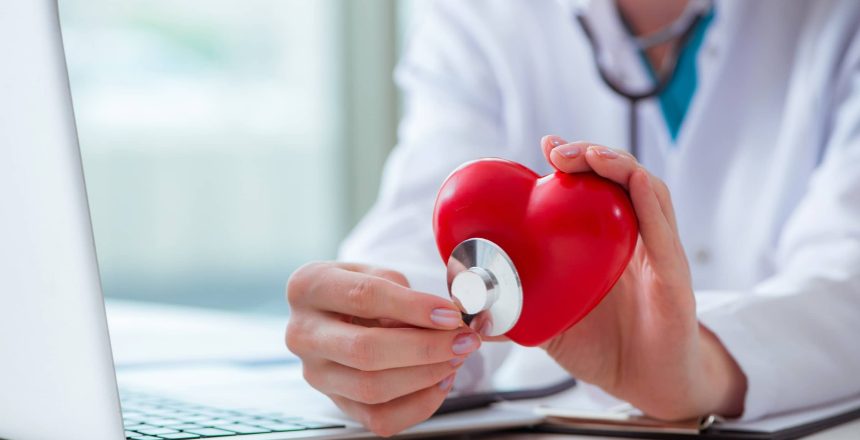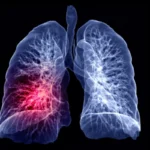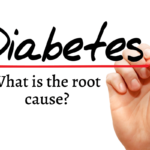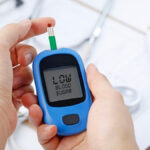What Is Arrhythmia
Heart Arrhythmias: Demystifying Irregular Heartbeats
A heart arrhythmia, often referred to as an irregular heartbeat, arises from disruptions in the electrical signals that orchestrate the heart’s rhythmic contractions. These disruptions can manifest in various forms, ranging from a rapid heartbeat to a sluggish one, or even an inconsistent pattern of beats.
While some arrhythmias are harmless and pose no significant threat, others can lead to life-threatening complications. Therefore, it’s crucial to understand the causes, symptoms, and treatment options associated with heart arrhythmias.
Overview
Amidst the rhythmic symphony of the human body, a discordant note occasionally emerges – the irregular heartbeat known as a heart arrhythmia. This deviation from the heart’s usual cadence arises when the electrical signals that orchestrate its beat falter. The heart may race like a runaway train or plod like a weary traveler, its rhythm erratic and unpredictable.
While some arrhythmias pose no threat, others can unleash a cascade of symptoms, leaving the individual feeling as if their heart is fluttering like a hummingbird’s wings or pounding like a drum against their ribs. These symptoms can range from mild palpitations to debilitating dizziness, even leading to life-threatening complications.
The heart, a tireless maestro of circulation, occasionally adjusts its tempo to suit the body’s demands. Exercise, for instance, prompts a quickening of the beat, while slumber lulls it into a slower tempo. However, when irregularities persist, the heart’s harmonious rhythm is disrupted, potentially leading to a symphony of discord.
Treatment for heart arrhythmias often involves a delicate balance of medications, devices like pacemakers, and in some cases, procedures or surgery. The goal is to restore harmony to the heart’s rhythm, taming its unruly beat and restoring its role as the body’s steadfast conductor.
Embracing a heart-healthy lifestyle can serve as a preventive melody, minimizing the risk of heart damage that can trigger some arrhythmias. This symphony of healthy habits includes regular exercise, a balanced diet, and stress management techniques, all working in concert to keep the heart’s rhythm in tune.
Understanding The Heart's Electrical Rhythm
The heart’s electrical system, akin to an internal pacemaker, generates impulses that synchronize the heart’s pumping action. These impulses travel along specialized pathways, ensuring that each chamber of the heart contracts in a coordinated sequence.
Any disruption in this electrical circuitry can lead to arrhythmias. The heart may beat too fast, too slow, or in an erratic manner, compromising its ability to efficiently pump blood throughout the body.
Causes of Arrhythmia
Heart arrhythmias can manifest in various ways, and some individuals may not experience any noticeable symptoms. However, common indications include:
Fluttering or racing heartbeat: A sensation of a rapid, pounding, or fluttering heartbeat.
Dizziness or lightheadedness: A feeling of faintness or dizziness, often accompanied by a sense of instability.
Chest pain or discomfort: A sensation of tightness, pressure, or discomfort in the chest area.
Unexplained shortness of breath: Difficulty breathing that arises without any obvious cause.
Fatigue or weakness: An overall feeling of tiredness or lack of energy, even after adequate rest.
When To See A Doctor
Seek Medical Attention for These Heart Symptoms
If you experience any of the following heart symptoms, it’s crucial to seek immediate medical attention:
Chest pain or discomfort: This is a common symptom of a heart attack, but it can also be caused by other conditions such as indigestion or anxiety.
Shortness of breath: This can be a sign that your heart is not pumping blood effectively.
Fainting or dizziness: This can be caused by a drop in blood pressure, which can be a symptom of a heart attack or other heart conditions.
In Case of a Medical Emergency
If you or someone you are with experiences any of the following signs of a heart attack, call 911 or your local emergency number immediately:
Sudden, crushing chest pain or discomfort that spreads to the arms, neck, or jaw
Shortness of breath
Nausea or vomiting
Cold sweats
Lightheadedness or dizziness
Responding To Ventricular Fibrillation
Ventricular fibrillation is a serious heart condition that can cause sudden cardiac death. If someone you are with collapses and is not breathing or has no pulse, follow these steps:
1. Call 911 or your local emergency number immediately.
2. If no one nearby is trained in CPR, start hands-only CPR. Push hard and fast on the center of the person’s chest at a rate of 100 to 120 compressions per minute. Continue CPR until help arrives.
3. If an AED is available, have someone retrieve it. An AED is a device that can deliver an electric shock to the heart to help restore a normal rhythm. Follow the instructions on the AED.
Remember, prompt medical attention is crucial for managing heart conditions and improving outcomes. Don’t hesitate to seek help if you experience any concerning symptoms.
Treatment of Arrhythmia
The treatment approach for heart arrhythmias depends on the specific type and severity of the arrhythmia, as well as the individual’s overall health condition. Common treatment options include:
Medications: Various medications can help regulate heart rate, control arrhythmias, and prevent complications.
Medical devices: Devices such as pacemakers or defibrillators can be implanted to regulate heart rhythm or prevent life-threatening arrhythmias.
Catheter ablation: A minimally invasive procedure that uses catheters to destroy small areas of heart tissue responsible for causing arrhythmias.
Surgery: In rare instances, surgical procedures may be necessary to treat certain types of arrhythmias.
Preventive Measures: A Heart-Healthy Lifestyle
Adopting a heart-healthy lifestyle can significantly reduce the risk of developing heart arrhythmias or their complications. Key lifestyle modifications include:
Maintaining a healthy weight: Achieving and maintaining a healthy weight reduces the strain on the heart.
Regular physical activity: Engaging in regular exercise, as advised by a healthcare professional, strengthens the heart and improves overall cardiovascular health.
Managing stress effectively: Chronic stress can contribute to arrhythmias. Practicing stress-management techniques such as yoga or meditation can be beneficial.
Quitting smoking: Smoking is a significant risk factor for heart disease, including arrhythmias. Quitting smoking can significantly improve heart health.
Moderate alcohol consumption: Excessive alcohol intake can increase the risk of arrhythmias. Limiting alcohol consumption or abstaining altogether is recommended.
Maintaining a healthy diet: Consuming a balanced diet rich in fruits, vegetables, and whole grains while limiting saturated and unhealthy fats can promote heart health.
Maintaining A Healthy Heart
Heart arrhythmias can be a cause for concern, but with proper understanding, timely diagnosis, and appropriate treatment, individuals can effectively manage their condition and maintain a healthy and fulfilling life. By adopting a heart-healthy lifestyle, you can empower yourself to prevent or mitigate the risk of developing arrhythmias and safeguard your overall cardiovascular well-being.










